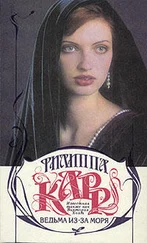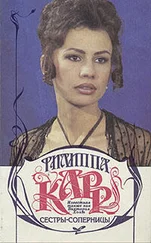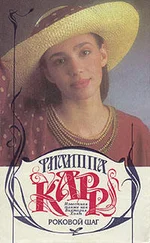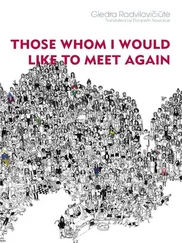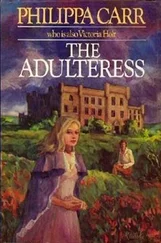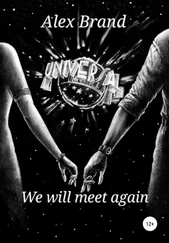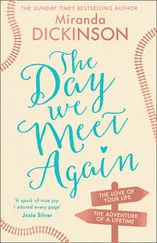Филиппа Карр - We'll meet again
Здесь есть возможность читать онлайн «Филиппа Карр - We'll meet again» весь текст электронной книги совершенно бесплатно (целиком полную версию без сокращений). В некоторых случаях можно слушать аудио, скачать через торрент в формате fb2 и присутствует краткое содержание. Жанр: Исторические любовные романы, на английском языке. Описание произведения, (предисловие) а так же отзывы посетителей доступны на портале библиотеки ЛибКат.
- Название:We'll meet again
- Автор:
- Жанр:
- Год:неизвестен
- ISBN:нет данных
- Рейтинг книги:4 / 5. Голосов: 1
-
Избранное:Добавить в избранное
- Отзывы:
-
Ваша оценка:
- 80
- 1
- 2
- 3
- 4
- 5
We'll meet again: краткое содержание, описание и аннотация
Предлагаем к чтению аннотацию, описание, краткое содержание или предисловие (зависит от того, что написал сам автор книги «We'll meet again»). Если вы не нашли необходимую информацию о книге — напишите в комментариях, мы постараемся отыскать её.
We'll meet again — читать онлайн бесплатно полную книгу (весь текст) целиком
Ниже представлен текст книги, разбитый по страницам. Система сохранения места последней прочитанной страницы, позволяет с удобством читать онлайн бесплатно книгу «We'll meet again», без необходимости каждый раз заново искать на чём Вы остановились. Поставьте закладку, и сможете в любой момент перейти на страницу, на которой закончили чтение.
Интервал:
Закладка:
"The searchlight moved quickly over the expanse of grass outside the chateau. We crouched on the ground when the light came our way.
"It was not easy. I heard the shots ring out and I was aware of a sudden burning pain in my arm. I thought, I've had it. This is the end. Then I heard Buster whisper, 'Keep still. Flat on the ground. Don't move a muscle.’ I obeyed and the searchlight passed over us and went on. "'Now,' whispered Buster, and with a tremendous effort, for I was beginning to feel faint, I rose and ran. Buster was pulling me on. Get a move on, sir,' he whispered. 'Want the Jerries to get us?’ "We crouched in the bushes. I was aware of the searchlight and that we were beyond its range. 'Cor Blimey,' said Buster. 'That was a close 'un. Thought it was goodbye, home and beauty. Come on now, or we'll miss the boat. Got to get going.”
"My sleeve was wet. I touched my arm and my hand came away red with blood. 'You'd better go on, Buster,' I said. 'I think I might "'Don't talk tripe, sir. Begging your pardon,' said Buster. 'Course I'm not going on without you. Who'd look after you? We're going to make it. They've had their bit of fun. They won't come after us now. They're kidding themselves it was a fox they saw. Makes life easy that way.”
"He was half dragging me along with him. I was beginning to feel rather vague. We were on a road and I saw the lights of a lorry in the distance. Buster dragged me into a hedge until it had passed.
Then we went on. I hardly knew what was happening; I think I must have been delirious. Buster told me later that I kept asking where I was and saying, 'Where is Jermyn's? Where's the Priory? I'm coming home.”
'You was saying your own name over and over again,' he told me, 'and talking to some bird called Violet... or something like that.”
"I think he must have carried me, which would have been awkward as I am considerably taller than he is. He probably dragged me most of the way. We had great good luck because in a field he found a wheelbarrow.
He was very good at improvising and I had seen him make good use of the oddest things. Now the wheelbarrow proved to be a carriage for me.
It was easy just to push me along. I think that wheelbarrow probably saved our lives. He would never have gone on without me. He's a marvelous fellow, old Buster. He was as clever as he boasted he was.
He used to say he could get round anyone, from commanding officers to the shyest bird. He saw himself as a powerful manipulator of everything, including women. I used to call him Casanova Brown. He had never heard of Casanova, but he was pleased when he realized the implication.
"In any case, I shall always believe I owe my life to Buster Brown.
"We came to a house, some way back from the road. Buster took a chance. He told me afterwards he thought I would pass out if he did not get me somewhere quickly. I was losing a lot of blood and he couldn't push a wheelbarrow in daylight.
"The house had been a farmhouse and was set in the midst of several acres; there were some chickens pecking round, a pig in a sty, and a donkey in a field. This I discovered later, of course, for I was not in a state to notice anything at this stage.
"When the door opened I was faintly aware of a woman speaking rapid French, of which I might have understood a little if I had been in a better state of health. Buster's knowledge of the language did not go beyond 'Ooh la la.”
"However, he must have managed to convey to her that he had escaped from the chateau, that his friend was wounded, and that he needed help.
"What good luck we had that night! Marianne, as we later discovered her to be, had an intense and abiding hatred of the German invaders.
They had shot her husband before her eyes and if she had an opportunity of harming them in any way she would eagerly have taken it.
"We also learned that she had helped others from our company to escape to freedom. She took in the situation at once-our clothes, our state, Buster's sign language, my blood-soaked sleeve-they all told the story.
"Briefly, she took us in. She attended to me first; she bandaged my arm, got me into a bed, and gave Buster a hunk of rye bread and something which bore a resemblance to coffee.
"I think I was delirious. I was not sure where I was and most of the time thought I was in the Priory. Buster slept well on the floor beside my bed.
"He said afterwards: 'I knew that Marianne was a good 'un. Some might have took us in and then given the alarm. Not this one. She's going to get her own back on the Hun, and his enemies are her friends.”
"Well, Marianne was indeed a 'good 'un." She was so good to us and without her I could not have survived. Through everything she did, she showed her hatred of the enemy. Otherwise she was a placid sort of woman, good-looking in a rather blowsy, dreamy way-except when she was giving vent to her hatred of Germans. Then she would look fierce and mutter what she would like to do to them.
"Buster and I smiled on these occasions. 'All the better for us,' was Buster's comment. I believed she would have taken any risk to work against them.
"But she was tender and sympathetic. When she dressed my arm she would murmur, 'Le pauvre petit garcon." It comforted me, for the pain could be great.
"We learned a little from Marianne of what had happened, how the great General de Gaulle was going to save France, of the Allied landings in Normandy, of that villain Petain who had betrayed France and become a slave to the cruel conquerors. The English and the Americans were 'magnifique' and here they were, back on French soil to rise against the conquerors and betrayers, to wipe away the country's shame and make her great again.
"It was her duty to help escaping prisoners, she said. She was doing it for France and she had liked so much the charming men who had come her way. There had been two airmen. They had dropped from their parachutes. She had kept them for two nights. There had been men from the chateau. She could tell them about the country... she could get clothes for them. She had some which had belonged to her husband who could no longer wear them because of the cursed Hun.
"I could see that I was a handicap for Buster and I said he should go on without me. We were too near the chau for comfort. What if the guards discovered that we were in this house? Not only should we suffer, but Marianne herself would.
"Buster turned this aside, and so did Marianne. She would not allow me to go with such an arm, though she could do but little for it, alas.
It needed a doctor. She could not call one, for how could she trust him? No, she would do what she could. At least it was something.
"Then we met Lisette. Lisette had been staying at her uncle's farm and had now come home to her mother. She was a younger version of Marianne-with the same plump and shapely figure, the same hooded eyes and full lips and overwhelming femininity. She smiled warmly at us.
She must have been accustomed to her mother's helping men to escape: she could speak a little English which was helpful.
"She said: 'Escape. You? From the chateau?’”
"We told her we had and that her mother had been very helpful.
"'My mother like much English and Americans. I too.”
"'Lucky for us,' said Buster.
"We were at Marianne's for several weeks. Much of the time I was hardly aware of my surroundings. It seemed so unreal there. My arm began to fester, but Marianne was afraid to ask the doctor to come.
She was wonderful to us. She kept us there and fed us, though we had no money with which to pay her.
"'She do for France,' declared Lisette dramatically. Buster worked on the farm, which I am sure was a great help, but I was unable to do anything.
"There was a time in the beginning when I suffered from delirium.
Читать дальшеИнтервал:
Закладка:
Похожие книги на «We'll meet again»
Представляем Вашему вниманию похожие книги на «We'll meet again» списком для выбора. Мы отобрали схожую по названию и смыслу литературу в надежде предоставить читателям больше вариантов отыскать новые, интересные, ещё непрочитанные произведения.
Обсуждение, отзывы о книге «We'll meet again» и просто собственные мнения читателей. Оставьте ваши комментарии, напишите, что Вы думаете о произведении, его смысле или главных героях. Укажите что конкретно понравилось, а что нет, и почему Вы так считаете.

